Ditapis dengan
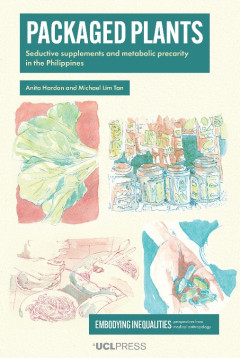
E-book Packaged Plants: Seductive supplements and metabolic precarity in the …
Packaged Plants offers an absorbing ethnography and cultural history of how the production and consumption of plants for food and medicine has gone through ‘metabolic rifts’, increasingly processed into commodities with adverse impact on health and aggravating existing economic and social inequities. The book also describes ultra-processed foods that are linked to metabolic syndrome, includ…
- Edisi
- -
- ISBN/ISSN
- 9781800087460
- Deskripsi Fisik
- 272 halaman, ilus.
- Judul Seri
- -
- No. Panggil
- 301 HAR p
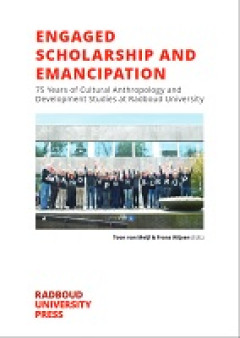
E-book Engaged Scholarship and Emancipation: 75 Years of Cultural Anthropolog…
This collective volume celebrates that 75 years ago the foundation was laid for the Department of Anthropology and Development Studies at Radboud University, Nijmegen, the Netherlands. The contributions to this volume exemplify the evolution of the academic disciplines of anthropology and development studies at Radboud University in the course of its history. Radboud University itself celebrate…
- Edisi
- -
- ISBN/ISSN
- 9789493296053
- Deskripsi Fisik
- 212
- Judul Seri
- -
- No. Panggil
- 301 MEI e
E-book Multiculturalism: A Very Short Introduction
In this Very Short Introduction, Ali Rattansi provides a balanced assessment of what's true and what's false about multiculturalism. Rattansi provides a useful definition of the word "multiculturalism" and he looks at how the term is used--and misused--in political debate, public policy, and within the educational arena, presenting a balanced and comprehensive view of all the opinions surroundi…
- Edisi
- -
- ISBN/ISSN
- 9780199546039
- Deskripsi Fisik
- 367 halaman
- Judul Seri
- -
- No. Panggil
- 301 RAT m
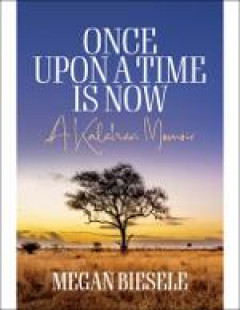
E-book Once Upon a Time is Now: A Kalahari Memoir
Fifty years after her first fieldwork with Ju/'hoan San hunter-gatherers, anthropologist Megan Biesele has written this exceptional memoir based on personal journals she wrote at the time. The treasure trove of vivid learning experiences and nightly ponderings she found has led to a memoir of rare value to anthropology students and academics as well as to general readers. Her experiences focus …
- Edisi
- -
- ISBN/ISSN
- 9781800738799
- Deskripsi Fisik
- 249 halaman
- Judul Seri
- -
- No. Panggil
- 928 MEG o
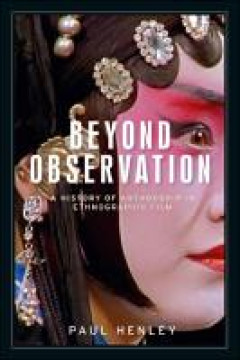
E-Book Beyond Observation: A History of Authorship in Ethnographic Film
This book analyses the authoring of ethnographic films between 1895 and 2015. It is based on the general argument that the ethnographicness of a film should not be gauged according to whether it is about an exotic culture, but rather by the degree to which it conforms to the norms of ethnographic practice more generally. On these grounds, it considers films made in a broad range of styles, on a…
- Edisi
- -
- ISBN/ISSN
- 9781526147295
- Deskripsi Fisik
- 563 halaman
- Judul Seri
- -
- No. Panggil
- 305.8 HEN b
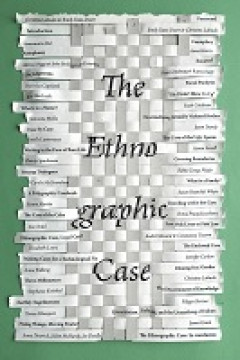
E-Book The Ethnographic Case: Second Edition
The 1st Edition of The Ethnographic Case, published in 2017, was an experiment in post-publication peer review, with the book published online and open to comments from readers. In this new 2nd edition, to be published later this year, the editors and authors have updated the text, both in response to these comments and taking into account changing contexts in the years since the book’s first…
- Edisi
- -
- ISBN/ISSN
- 9781912729340
- Deskripsi Fisik
- 258 halaman
- Judul Seri
- -
- No. Panggil
- 301 YAT t
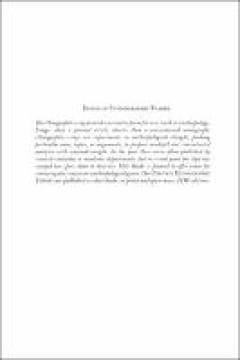
E-Book How Is It Between Us? : Relational Ethics and Care for the World
A new theory of relational ethics that tackles contemporary issues. In How Is It Between Us?, Jarrett Zigon puts anthropology and phenomenological hermeneutics in conversation to develop a new theory of relational ethics. This relational ethics takes place in the between, the interaction not just between people, but all existents. Importantly, this theory is utilized as a framework for consider…
- Edisi
- -
- ISBN/ISSN
- 9781914363054
- Deskripsi Fisik
- 150 halaman
- Judul Seri
- -
- No. Panggil
- 301 ZIG h
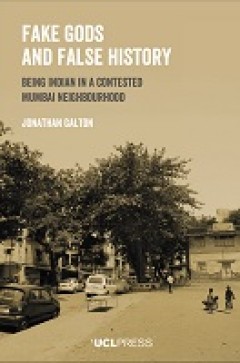
E-Book Fake Gods and False History: Being Indian in a Contested Mumbai Neighb…
n an age where history is a global battleground and fake news proliferates, culture wars are being waged across India over its future – majoritarian or inclusive, neoliberal or socialist, religious or secular? Fake Gods and False History takes us to the BDD Chawls, a central Mumbai neighbourhood of tenement blocks (chawls) on the brink of a controversial redevelopment. Throughout the book, …
- Edisi
- -
- ISBN/ISSN
- 9781800085800
- Deskripsi Fisik
- 237 halaman
- Judul Seri
- -
- No. Panggil
- 305.8 GAL f
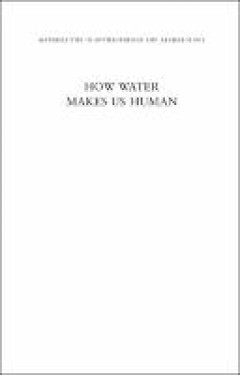
E-Book How Water Makes Us Human
This book is about how water becomes people – or, put another way, how people and water flow together and shape each other. While the focus of the book is on the relationships held between water and people, it also has a broader message about human relationships with the environment generally – a message that illustrates not only that people are existentially entangled with the material wor…
- Edisi
- -
- ISBN/ISSN
- 9781786834119
- Deskripsi Fisik
- 192 halaman
- Judul Seri
- -
- No. Panggil
- 301
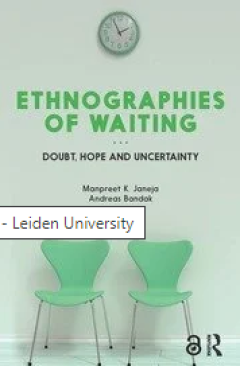
E-book Ethnographies of Waiting : Doubt, Hope and Uncertainty
- Edisi
- -
- ISBN/ISSN
- 9781000183764
- Deskripsi Fisik
- 212 hlm
- Judul Seri
- -
- No. Panggil
- 305.8 JAN e
- Edisi
- -
- ISBN/ISSN
- 9781000183764
- Deskripsi Fisik
- 212 hlm
- Judul Seri
- -
- No. Panggil
- 305.8 JAN e
 Karya Umum
Karya Umum  Filsafat
Filsafat  Agama
Agama  Ilmu-ilmu Sosial
Ilmu-ilmu Sosial  Bahasa
Bahasa  Ilmu-ilmu Murni
Ilmu-ilmu Murni  Ilmu-ilmu Terapan
Ilmu-ilmu Terapan  Kesenian, Hiburan, dan Olahraga
Kesenian, Hiburan, dan Olahraga  Kesusastraan
Kesusastraan  Geografi dan Sejarah
Geografi dan Sejarah